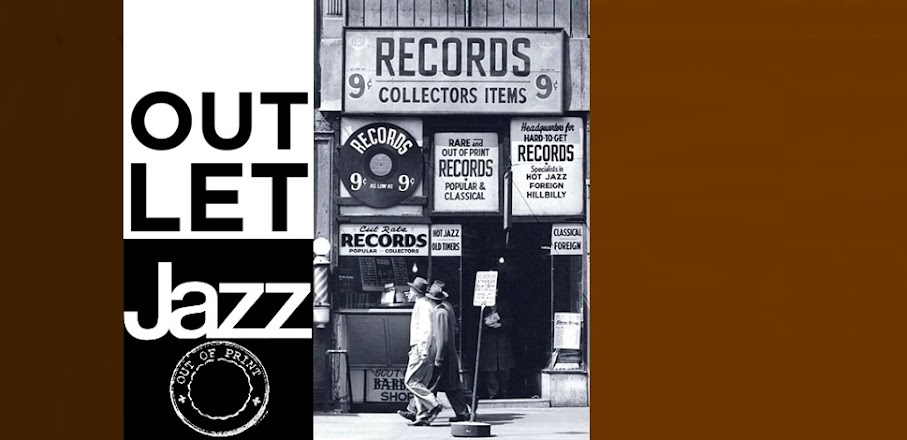There have lately been a good many bosomy sermons —now that the apologists have done their work— within and without the music about jazz, the art. Few of these hosannas, however, ever point out this fact: Jazz is alwaysan art form; but it is only an art when it recreates, in whatever mode, its chosen materials into fresh, higher superstructures that give the listener a kind of surprised emotional elevation, sustenance, and release-akin, in a sense, to the purge and exhilaration of Greek tragedy. The jazz artist who achieves this connection with his listener must, perforce, be more than just a professional. And as an artist he must, of course, also be an individualist,even an iconiclast —great jazz being, it would seem, a remarkable working union of iconoclasts— or else he would simply be a skillful reshader or copyist.
Modern jazz, however, has, in addition to a general lack of oomph, few individualists among its members. Individuality, like the tortoise, takes time and courage. But there has recently appeared in the modern jazz world a powerful and almost Victorian workship of "progress" as a virtue in itself. Thus a competent musician, to be "progressive", often handily copies what seems progressive in the work of a slightly more mature musician. This is easy, and at the same time, stylish. Real progress in jazz, though, can take place only when a musician has full knowlwdge of who and what have come before in his medium and has decided, beneath his own sun, that he is ready to try and forge a new branch on his tree-a condition of patience and work that few modern jazzmen have the endurane and imagination for.
One modern jazzman who is worth quietly watching and studying, is Jack Montrose, a serious, single-minded and unhurried twenty-six-year-old composer, arranger, and tenor saxophonist. Montrose is representative of the new school of West Coast modern jazzmen —the shiny silver fish od contemporary jazz— in that he combines these capacities to a professional and perhaps even higher degree.
One of the balancing weights on Montrose, The instrumentalist, has been his close association in the past few years with the late Bob Gordon (Bob was killed in a automobile accident Sunday, August 28, 1955, in Los angeles), who handles the baritone saxophone here, and who is also twenty-six. Gordon is a hot, heady baritone saxophonist, a quality which has probably watered down Montrose's tendency toward over-intellectualization in his playing.
Montrose has arranged all of the eight tunes here, five of which are his originals. Listen for the brightness and humor of "Listen, Hear" and "Some Good Fun Blues", where, with "Credo" there are excellent demostrations of Montrose's fluid, ensemble work. Listen for de solos on "Bewitched Bothered And Bewildered" by Gordon and Candoli, and the touching, hard-pressing tenor saxophone statement by Montrose on "Pretty". Here is individuality, skill, and honesty. Because few jazz students have yet learned how to listen to modern jazz, there is little successful modern jazz. This album, then, is a chance for as much earnest study and awareness from the listener as Montrose has put into it. *Whitney Balliett (liner notes)*
Improvisation is of prime importance. Everything I write is a framework for jazz. In my compositions, I want the jazz musician to improvise within the framework that I have constructed for him. In order to do this successfully, I have to write a complete structure conceived of from beggining to end with these musicians in mind; the way they play, the way they sound. I take all this into consideration when I write a jazz composition. My objective is to create a complete structure that enables the jazz musician to play compatibly with my composition. My object as composer is to organiza the perceptions of the jazz musicians involved.
Bob Gordon was an inspiration to every jazz musician or aspirant who ever heard him play or was, perhaps, fortunate enough to share the bandstand with him; fortunate enough to partake of the fire that roared and the sparks that flew and the proclamations of the Gods that sounded when he put his big horn to his lips and made the world abound with life and zest and unbounded love. For the world was a better place to live in when he played and perhaps this singular ability to make it so was in itself his greatest gift.
For me Bob Gordon was more than just as inspiration he was my other half and together we formed a musical whole. Our partnership has not ended, however, for his part is indelibly stamped upon my soul and then task is mine to carry on. For we understood one another and agreed completely. I am fortunate to have loved and been loved in return by one such Bob Gordon. I also realize that the companionship and artistic rapport which we enjoyed were of such a nature as is not commonly experienced. I am fortunate and a better man for having known and loved Bob Gordon.
*Jack Montrose (liner notes)*
Side 1
1 - Listen, Hear
(Jack Montrose)
2 - Bewitched, Bothered And Bewildered
(Richard Rodgers, Lorenz Hart)
3 - Some Good Fun Blues
(Jack Montrose)
4 - Fools Rush In
(Rube Bloom, Johnny Mercer)
Side 2
5 - Speakeasy
(Jack Montrose)
6 - Credo
(Jack Montrose)
7 - Pretty
(Jack Montrose)
8 - That Old Feeling
(Sammy Fain, Lew Brown)
Jack Montrose (tenor sax), Conte Candoli (trumpet), Bob Gordon (baritone sax), Paul Moer (piano), Ralph Pena (bass), Shelly Manne (drums).
Recorded in Los Angeles, California, June 24 (#1, #2, #6, #7) and July 6 (#3, #4, #5, #8), 1955.


https://www.mediafire.com/file/59ywx4hnbt7cvcu/JM_jckmntrssxtt.rar/file
ReplyDeleteThanks bibs!
ReplyDeleteAgradecido. Salud
ReplyDeleteThank you.blbs.
ReplyDeleteMuchas gracias
ReplyDelete